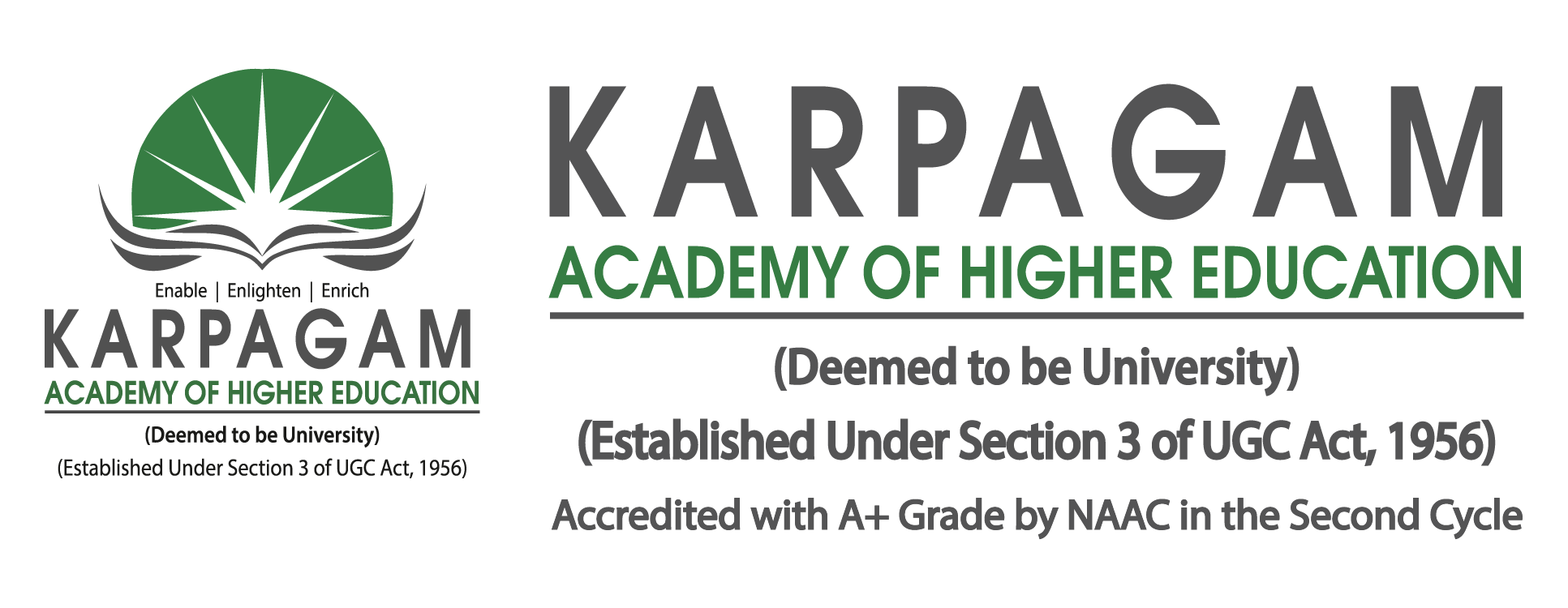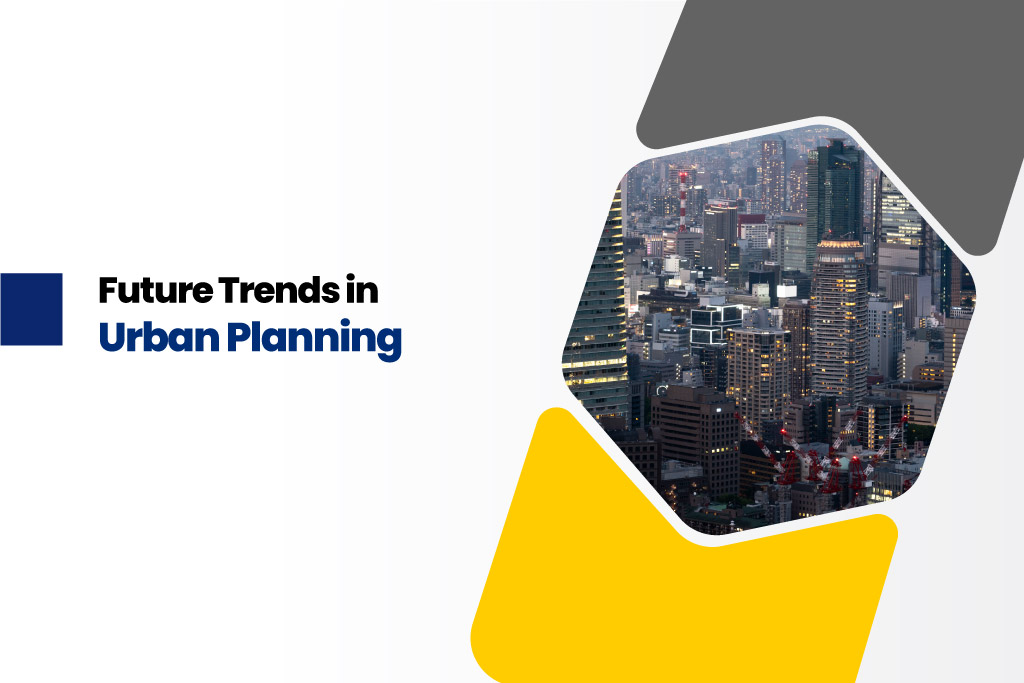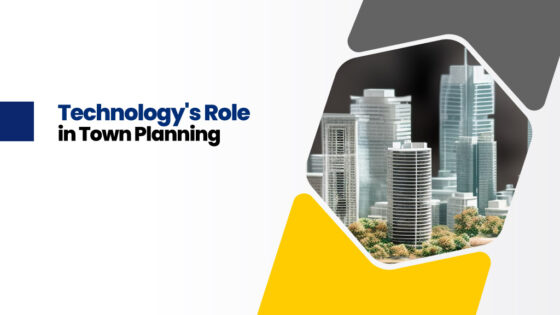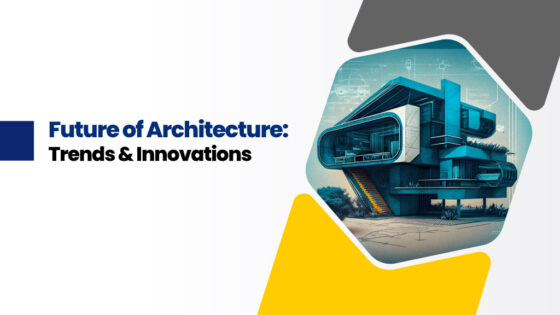The year 2020 was critical for cities and communities, particularly due to the pandemic that drastically impacted urban living. As a result, local governments had to react swiftly to protect people’s lives and find ways to address the long-term effects of COVID-19.
The future of urban living spaces with a purpose:
With rising challenges, highlighting the need for cities to focus on people’s well-being increased the need to humanize urban spaces and cultivate a strong sense of connectivity. As part of a study committed to helping cities drive change, Deloitte Insights conducted interviews with prominent people with extensive experience in the field. Let’s look at the eight data-driven technological trends that cities need to embrace to become smarter, more sustainable, and more resilient.
Pursuing BArch programs at the top architecture colleges in Tamil Nadu allows you to delve deep into real-world applications with tailored programs, enabling you to gain specialized knowledge and distinguish yourself in your chosen field.
The following trends focus on addressing the main challenges brought about by the pandemic but are not equally applicable to all cities since city development requires tailored approaches and can be embraced depending on their unique needs.
1. Green Planning of Public Spaces: Urban areas face increasing pressure from population expansion, finite resources, and the escalating effects of climate change. As a result, cities are being planned with a focus on human-centric designs, incorporating ‘green’ streets, novel corridors, and public spaces as social interaction hubs and the absence of natural space leads to unhealthy urban living environments. Cities also need to prioritize embracing decarbonisation measures to address climate change.
2. Smart Health Communities: Cities are developing health ecosystems that prioritize prevention and early intervention, using digital technologies to support the well-being of people. The pandemic highlighted the need for cities to focus on the well-being of their citizens by embracing preventive medicine, as the top causes of illness and death are due to unhealthy behaviour.
Karpagam Architecture is one of the best architecture colleges in South India that prepares you to work with diverse teams, navigate the complexities associated with the construction sector, and take your project to the next level.
3. 15-Minute City: This approach embraces a decentralized urban planning model where essential basic amenities for living and working are accessible within a 15-minute walk or cycle radius. It minimizes the need for redundant travel and strengthens community engagement, thereby enhancing sustainability and liveability by bringing down carbon footprints.
4. Mobility: Cities are rapidly making way for more walking and cycling spaces, and transport is provided as a service. The rise in electric vehicles, autonomous driving, smart and connected infrastructure, and intelligent multi-modal mobility is making a significant shift in how people navigate around the city. The trend is only expected to increase in the coming decade, disrupting transportation services.
KARCH is one of the top architecture colleges in Coimbatore that equips you with the necessary interpersonal and soft skills, enabling you to inspire, delegate, and navigate complex team dynamics with confidence.
5. Inclusive Services and Planning: Cities should prioritize social inclusion to provide equal access to housing, infrastructure, and opportunities. Inclusive design can help remove barriers based on race, nationality, gender, disability, or religion.
6. Digital Innovation Ecosystem: Cities are competing for investment, skilled workers, and cultural prominence and turning into innovation hubs. The goal is to attract talent and enable creativity with a multidimensional approach to creative innovation, wherein governments act as platforms to promote its growth.
Pursuing BArch courses at the top architecture colleges in South India opens you to industry internships and projects, providing practical exposure to apply your expertise in real-world situations and build a robust portfolio to attract the attention of potential employers.
7. Circular Economy and Producing Locally: This approach is about adopting circular models based on sharing, reusing, restoring, and limiting waste. A circular economy entails minimizing the use of finite resources and eliminating waste from the system by embracing urban farming and decentralizing energy production.
8. Futuristic and Sustainable Infrastructure: This approach focuses on bringing down emissions with optimal energy utilization. Regenerating buildings and leveraging data to optimize energy consumption and efficient management of resources in buildings and utilities, including waste, water, and energy,.
Pursuing specialized courses at the top architecture colleges in Tamil Nadu provides you with a holistic education that enhances your technical skills and strategic thinking, empowering you to complete your projects efficiently.
By embracing data-driven technological approaches, cities can optimize their operations, manage resources more efficiently, and ensure the safety and security of their residents, thereby becoming more resilient, sustainable, and human-centered, creating a better future for all.






